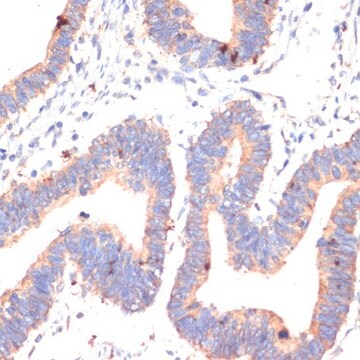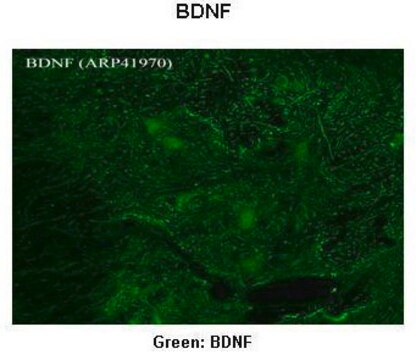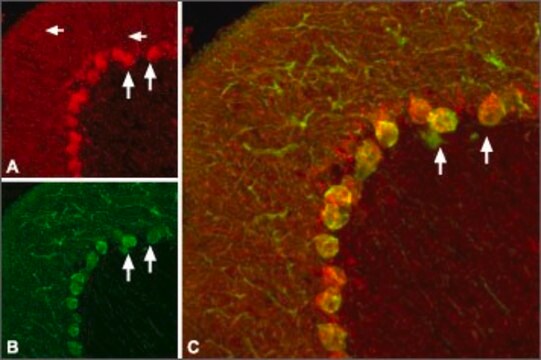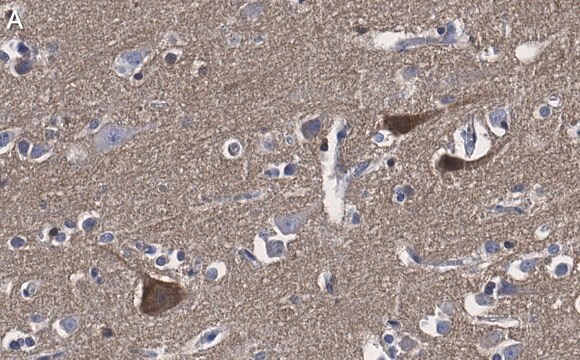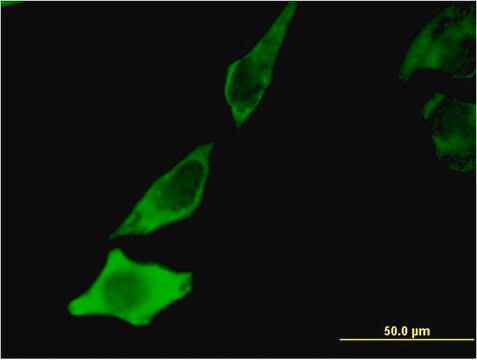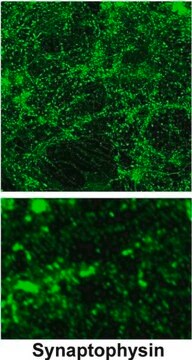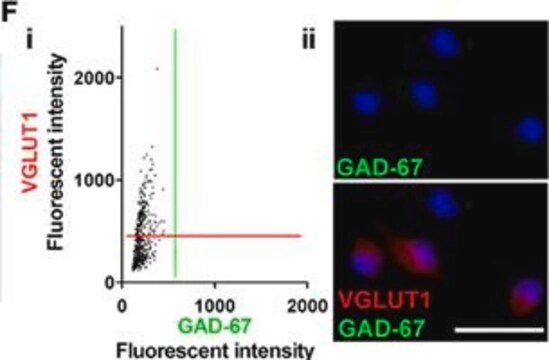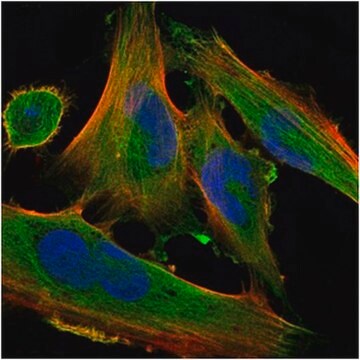SAB4200744
Anti-BDNF antibody, Mouse Monoclonal
clone BDNF129-13, purified from hybridoma cell culture
Sinónimos:
Anti-Abrineurin, Anti-Brain-derived neurotrophic factor
About This Item
Productos recomendados
origen biológico
mouse
Nivel de calidad
conjugado
unconjugated
forma del anticuerpo
purified from hybridoma cell culture
tipo de anticuerpo
primary antibodies
clon
BDNF129-13, monoclonal
formulario
buffered aqueous solution
mol peso
~12 kDa
reactividad de especies
human
concentración
~1.0 mg/mL
técnicas
immunoblotting: 2-4 μg/mL using lysate of human HEK-293T cells over-expressing human BDNF protein
immunocytochemistry: suitable
immunohistochemistry: 20-40 μg/mL using pronase retrieved formalin-fixed, paraffin-embedded human cerebellum sections
immunoprecipitation (IP): 10-20 μg/mL using lysate of human HEK-293T cells over-expressing human BDNF protein
isotipo
IgG2b
Nº de acceso UniProt
Condiciones de envío
dry ice
temp. de almacenamiento
−20°C
modificación del objetivo postraduccional
unmodified
Información sobre el gen
human ... BDNF(627)
Descripción general
Inmunógeno
Aplicación
- immunoblotting
- immunohistochemistry
- immunoprecipitation
- immunocytochemistry
Acciones bioquímicas o fisiológicas
Forma física
¿No encuentra el producto adecuado?
Pruebe nuestro Herramienta de selección de productos.
Código de clase de almacenamiento
10 - Combustible liquids
Punto de inflamabilidad (°F)
Not applicable
Punto de inflamabilidad (°C)
Not applicable
Certificados de análisis (COA)
Busque Certificados de análisis (COA) introduciendo el número de lote del producto. Los números de lote se encuentran en la etiqueta del producto después de las palabras «Lot» o «Batch»
¿Ya tiene este producto?
Encuentre la documentación para los productos que ha comprado recientemente en la Biblioteca de documentos.
Nuestro equipo de científicos tiene experiencia en todas las áreas de investigación: Ciencias de la vida, Ciencia de los materiales, Síntesis química, Cromatografía, Analítica y muchas otras.
Póngase en contacto con el Servicio técnico